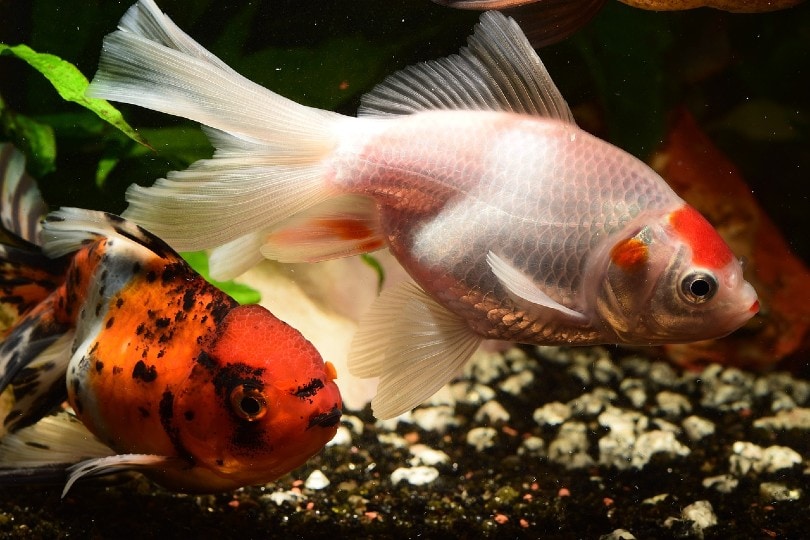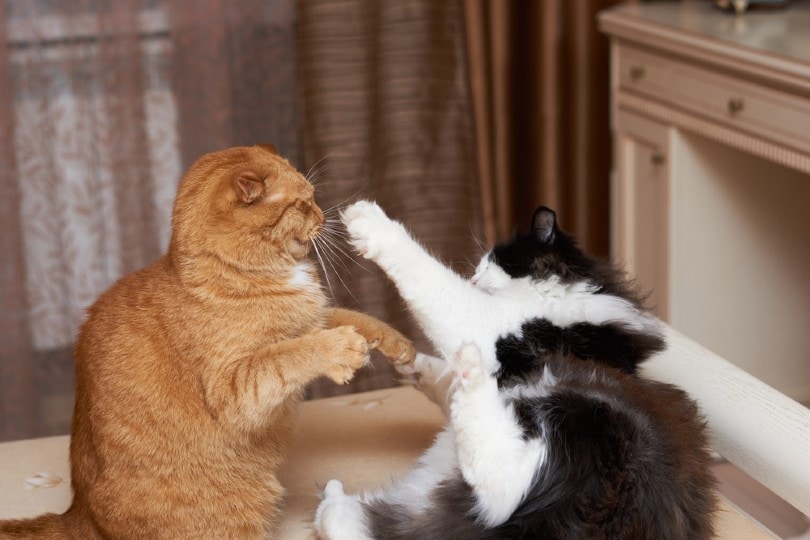VET APPROVED

The information is current and up-to-date in accordance with the latest veterinarian research.
Learn more »Goldfish are friendly and playful creatures, but are goldfish aggressive? The good news is that they generally do not exhibit aggressive behaviors, but as social fish, they are definitely capable of aggressiveness in certain scenarios. It can be alarming to realize you may have purchased an aggressive goldfish, or even worse; your friendly goldfish suddenly develops an aggressive nature towards its tank mates.
There are several reasons your goldfish may be acting aggressively. Goldfish aggression is not common, but it is not unheard of. Any fish can get agitated, and even the most peaceful fish get moody sometimes. Aggression can alter your carefully balanced goldfish community tank. The aggressive goldfish will stress itself out and cause distress in the other goldfish.
It is crucial to get to the root of the problem and find the best solution to stop it. This guide will help you find methods to control aggression while identifying the top causes.

Can Goldfish be Aggressive?
Goldfish are not aggressive fish in most circumstances. However, they are definitely capable of aggression. Goldfish are not schooling fish, but rather, they are considered shoaling fish. Shoaling fish are those that stay together for social purposes. Though they typically get along well with each other, they may also turn on each other in times of stress. This trait sets goldfish apart from schooling fish.
As the name suggests, schooling fish form schools, and are distinct from shoaling fish in two aspects: they swim in a coordinated manner, and they become stressed if their school size is too small (or if they are alone).
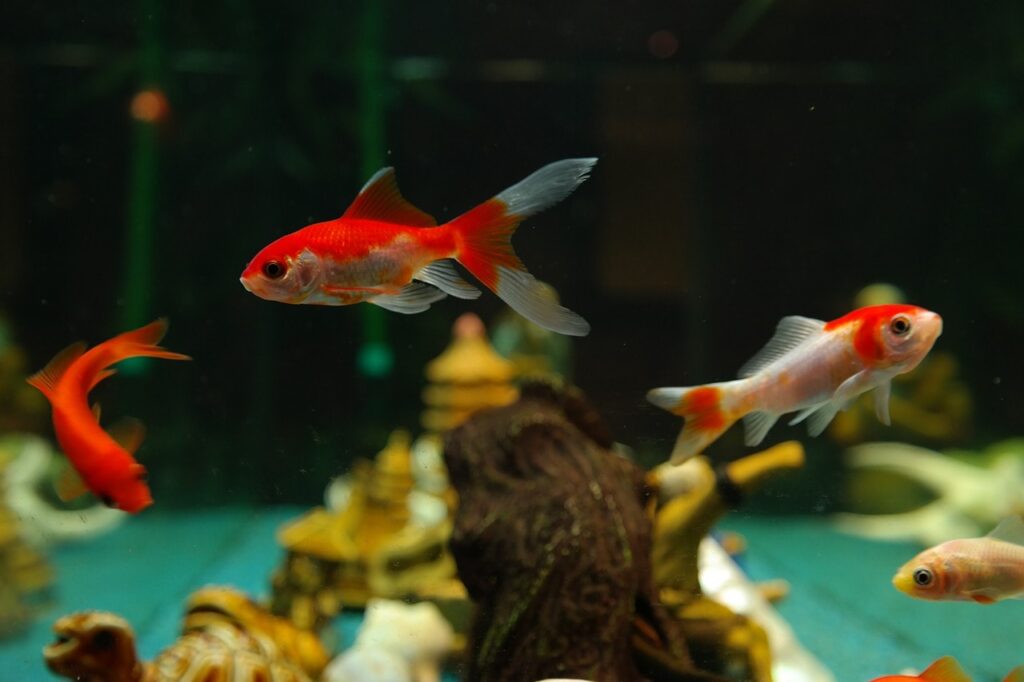

The 8 Reasons Your Goldfish Is Aggressive
1. Mating Behavior
This is a natural occurrence in goldfish that are housed with opposite genders. Mating or spawning behavior consists of a male goldfish chasing the female goldfish. In some cases, the female may chase the male. In male-only tanks, the males may begin chasing each other. Mating behavior is common when the goldfish are ready to breed and can occur periodically. It is not usually a cause of concern and should not happen very often.
Keep a good ratio of male-to-female goldfish. Fewer males with more females will reduce the time a male goldfish will spend chasing the different females.
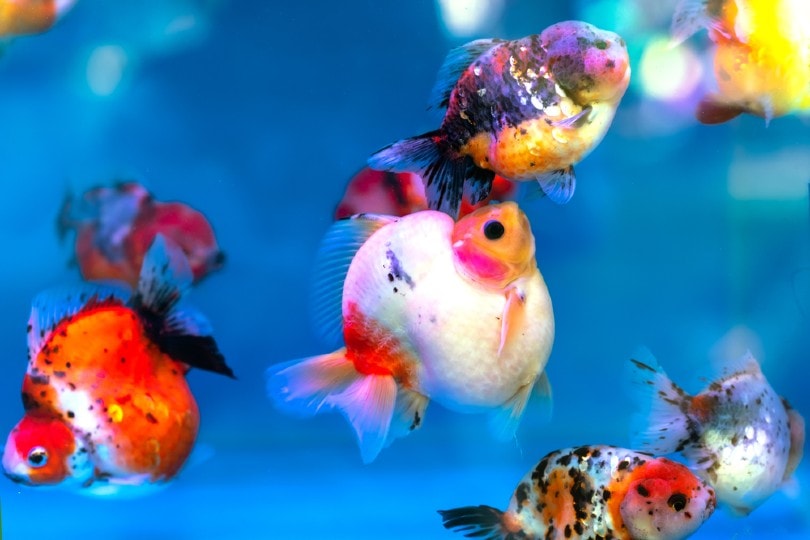
2. Small Living Space
Goldfish can become stressed if they are kept in a bowl or vase, which is too small for appropriate living conditions and will not allow your goldfish to thrive. This can cause them to become aggressive and generally unfriendly toward their tank mates. They are feeling cramped and restless because of the small container. A tell-tale sign of stress in such a scenario is a goldfish “glass surfing” as they pace up and down along a side of the aquarium. Some tanks can also be too small or even too tall. Goldfish appreciate a rectangular tank and a good amount of horizontal swimming room.
Provide your goldfish with the largest tank you can afford. Avoid using spherical-shaped aquaria unless it is for temporary use in the case of an emergency.
Housing a goldfish isn't as simple as buying a bowl. If you're a new or experienced goldfish keeper who wants to get the setup right for your goldfish family, check out the best-selling book, The Truth About Goldfish, on Amazon. It covers all you need to know about the ideal tank setup, tank size, substrate, ornaments, plants, and so much more!
3. Limited Food
If you do not feed your goldfish enough food, they will fight and chase each other for food. This is a common occurrence for goldfish during feeding time.
Sprinkle food in different areas of the tank so that each goldfish can reach the food. Make sure you feed enough to satisfy all the goldfish in the tank. A healthy adult goldfish needs to eat approximately 4% of their body weight in food every day.
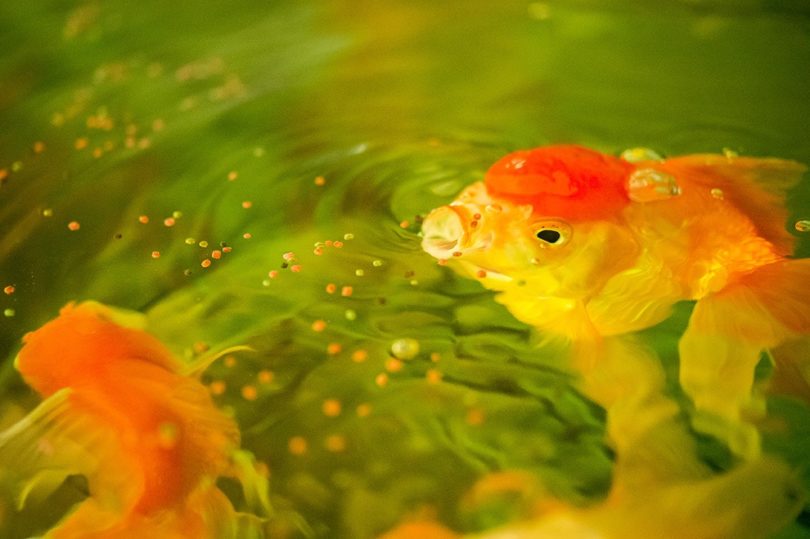
4. Crowded Conditions
If the number of goldfish in the tank is too high for the size of the tank, your goldfish will feel crowded and cramped. This will cause them to bicker amongst one another for swimming space. It is uncomfortable for the goldfish and only leads to unnecessary stress. You may notice the goldfish chasing each other with erratic movements. In some cases, the goldfish will chase the other one to the point where it will jump out of the tank to escape its living conditions.
Do not add too many goldfish to a tank. Avoid overcrowding the tank with decorations and plants. Each goldfish should be able to swim around without bumping into another or being unable to turn around without colliding with another goldfish.
5. Disputes
Anecdotally, it is not uncommon for goldfish to get into a minor dispute with a tank mate. This can be due to competition over mates, food, treats, or a resting spot. This is not usually a cause for concern, and the goldfish should be okay after a few minutes.
Ensure your aquarium is large enough for your goldfish and has a lid to avoid jumping mishaps.
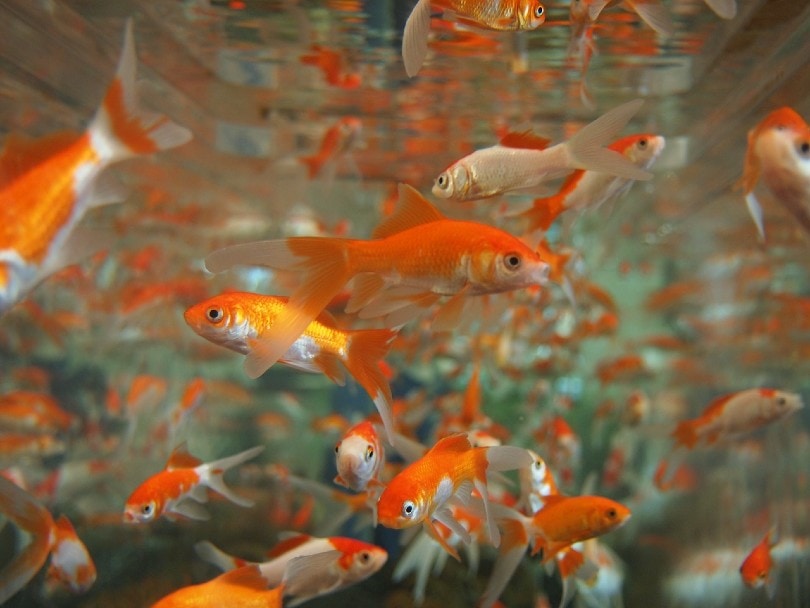
6. Unsuitable Tank Mates
Goldfish should ideally only be housed with their species. If your goldfish is housed with aggressive fish like Oscars, Cichlids, or Jack Dempseys, they may anecdotally become aggressive due to the aggression they receive from them.
Only keep goldfish in the tank. It is best to not attempt to house them with other fish. Mystery snails are an exception if they are larger than your goldfish’s mouth. You can also keep fancy goldfish with other slow-moving varieties of goldfish.
7. Startled
Another anecdotal theory suggests that if a goldfish is startled by you or another external source, it may take in the pent-up adrenaline rush and chase other goldfish. This is apparently common with new goldfish who are not yet familiar with their surroundings. Small children tapping on the glass or making fast movements around the tank can also cause this reaction. Aside from the fish showing temporary aggression, it will also become stressed.
Keep small children and other large pets like cats and dogs away from the tank.
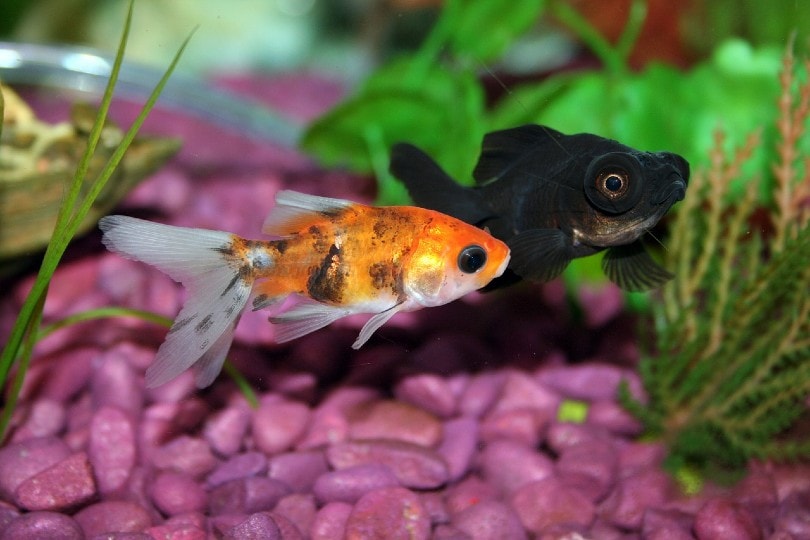
8. Stress
Stress sometimes causes a goldfish to become aggressive. They will show anger toward their tank mates by chasing or nipping them. Goldfish can become stressed for several reasons. The most common cause of stress in goldfish is inappropriate housing and poor water conditions. Aside from stress causing aggression, it can also lower the goldfish’s immune system and cause them to fall ill.
Keep them in appropriate conditions with a filter. Ensure that you regularly test the water and do frequent water changes to keep the water clean.

Final Thoughts
So, are goldfish aggressive? Generally, the answer is no; they are peaceful fish that like to live in groups. However, aggression in goldfish should be dealt with as soon as you notice any signs of it. Ensure that the goldfish has a large tank and an appropriate stocking rate. Aggression can be easily identified and diagnosed in an aquarium. Any form of aggression in goldfish should be considered abnormal. Every aggression factor should be considered before you decide it is just the goldfish’s personality, which is usually untrue.
We hope this article has helped you identify and find solutions to your goldfish’s aggressive behavior.
Featured Image Credit: Juan Carlos Palau Díaz, Pixabay
